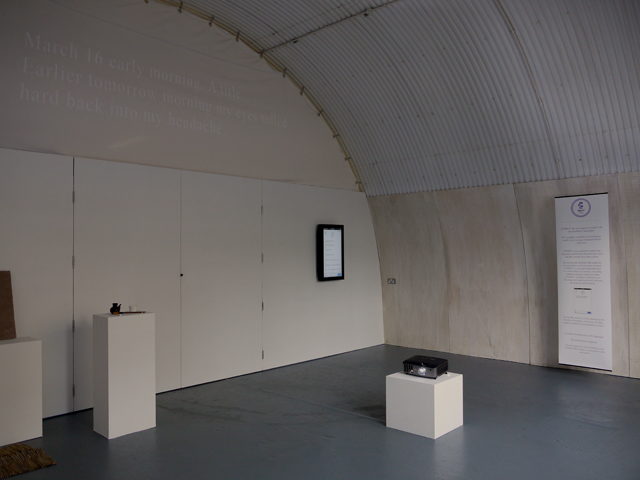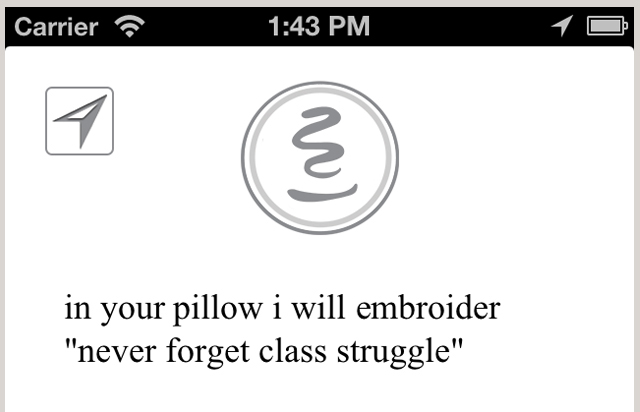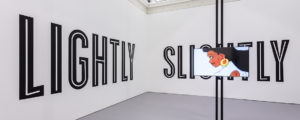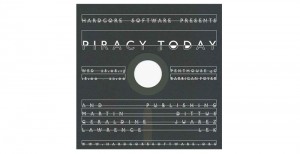Amalia Ulman’s latest project ETHIRA® presents art’s future counter-culture as ephemeral and anonymous, yet powerful. With beta testing from a host of artists that play with poetry, such as Bunny Rogers and Matt Luther, it takes the form of a downloadable application built collaboratively with developer Daniel Levitt and Arcadia Missa, in-tandem with a physical exhibition at the latter’s gallery space.
ETHIRA® presents a clean greyscale interface. It is available from iTunes store under the category of “Social Networking”. However its purpose, to share authorless 140 word posts that disappear once displayed on its recipients’ devices, does not follow mainstream marketing principles. Here, no Facebook thumbs up or Twitter retweet equivalent is programmed in, only the possibility to read a stream of prose, coupled only to a geographical location from where the thought was born, at its author’s discretion.

ETHIRA® facilitates freedom of expression with the death of the author, it places value on the word and extends the arena for that short SMS fiction that is so popular with Japanese commuters. How anyone who uses the app understands the work will depend on where they are, who they are and, if included, how they contextualise the location from where the post came. That also works the other way, its authors are liberated of a back catalogue, a need to relate to an audience or fear of criticism. All of which, of course, can also lead to unexpected results.
As with all technology, ETHIRA® is at the mercy of its users. Couplets, teen angst or abuse could become the flavour of what is read on an application whose anonymity is a selling point for those who revel in trolling. The posts’ momentary existence make it the perfect medium for quick, unedited thoughts, automatically deleted without care.

Contrastingly, Arcadia Missa’s gallery space sandstone tablets sit with tools of brush and water, inspired by the Buddhist tradition of writing with water onto hot stones and point to a simple form of meditative writing. Sentences could disappear once written, allowing the author to observe their own thoughts, graphically illustrated and beyond their mind’s eye, before letting the text go and arranging their thoughts. It’s a philosophy undoubtedly closer to what Ulman seeks to advocate, where ownership over content is abandoned and its validity is never subject to user approval.
In that way ETHIRA® is the opposite of a social network site but not actually ‘antisocial’, such as apps like Hell Is Other People, which warns you of your ‘friends’ close proximity. It is far more restricted than Snapchat, which allows users to share multimedia timed to self-destruct, but in being solely text-based encourages its own belief in anonymity. It’s an application that channels the values of post-hippie-era electronics ideals on free software and free expression, while predominant net counter-culture focuses on spam, denial of service and hoaxes. Ultimately, though, its success rests on who joins and how that shapes its future.






















